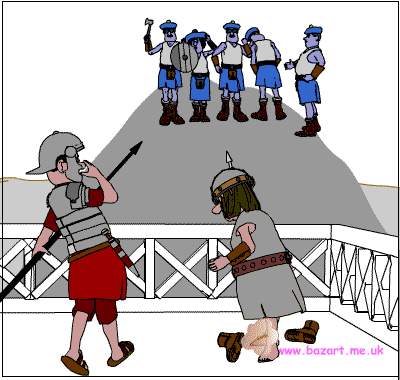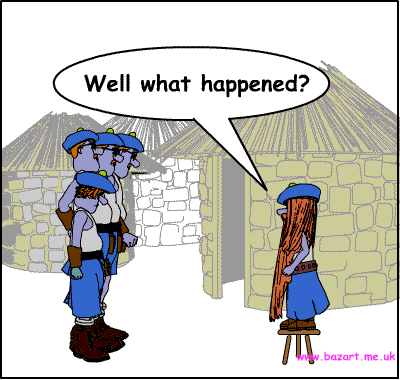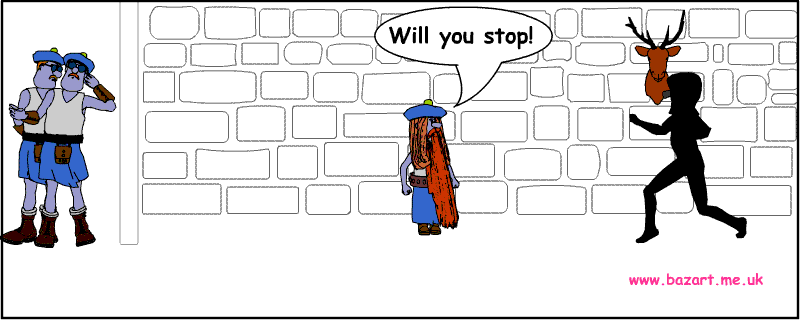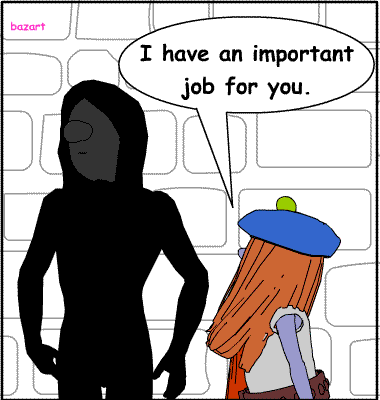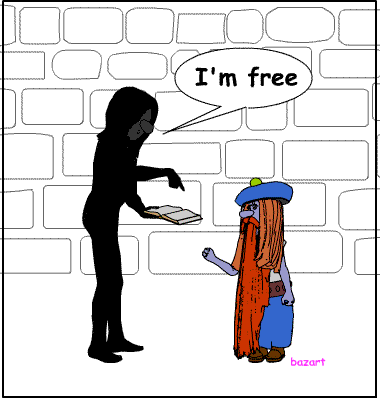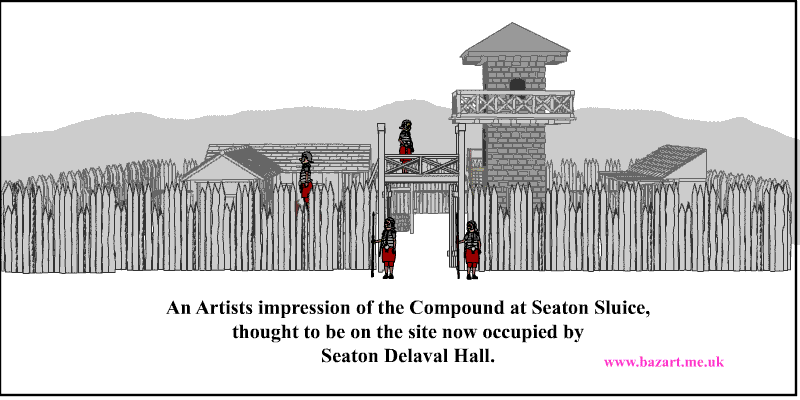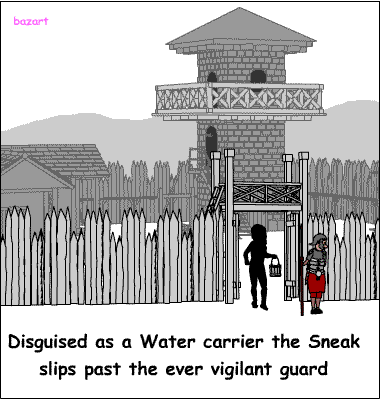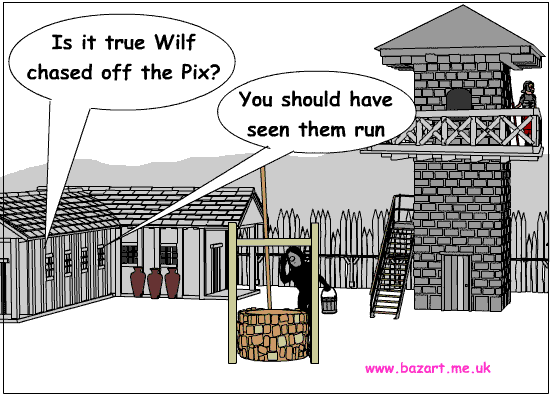|
Hadrian's Wall, an unlikely tale, episode 2 |
| In this continuing cartoon Comic about Roman Britain the occupants of the Fort at Seaton Sluice let loose their new secret weapon on the unsuspecting Scots, |
|
|
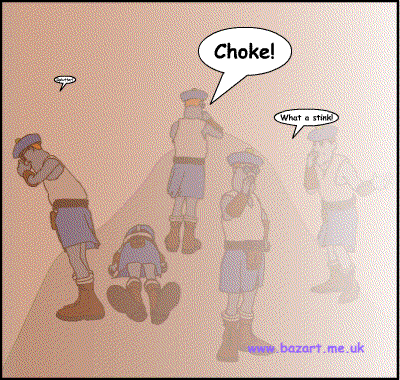 |
| Overcome by the smell from
Wilf's feet the angry Scots are forced to abandon their
protest and scurry home to their village. Big Mac their Chief will not be a happy Chief and the protesters fear his angry retribution. |
|
|
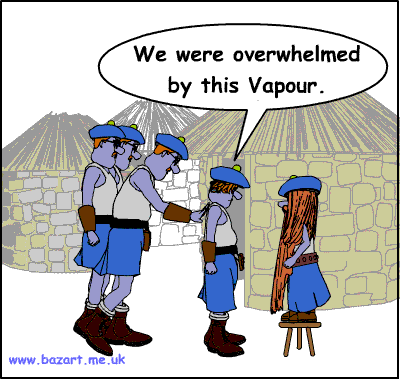 |
| The group of
protesters try to explain their failure to the
Chief. For years the Scots have fought those south of the border, indeed some reckon little has changed in 2000 years. |
|
|
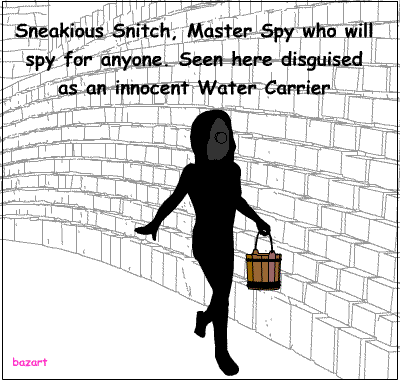 |
| The angry Scots
Chief is
appalled that his men were put off their mission
by a mere Pong and he sends for Sneakious Snitch, the Master Spy. |
|
|
| Years of
spying for both the Romans and the Scots,
and anybody else for that matter, has made Sneakious one of the most paranoid
people on the planet, apart from a
succession of Roman Emperors who during this
period didn't last long in power. |
|
|
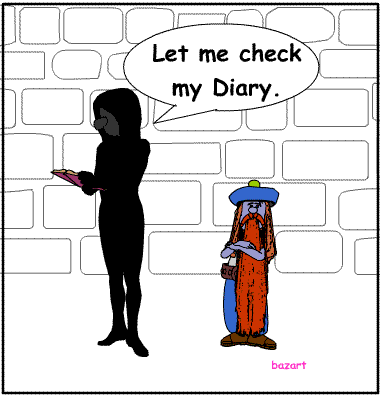 |
|
Sneakious, being naturally sneaky,
and devious adopts a feigned stance
of complete and utter disinterest.
By adopting this pose he hopes to
extract a larger fee from his
prospective employer. |
|
|
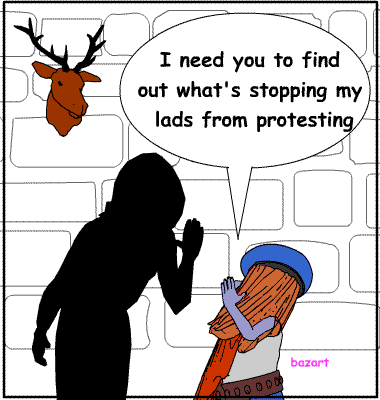 |
| Sensing the Chiefs growing impatience and not wishing to lose out on what may be a lucrative piece of business, Sneakious declares he available for some spying. The Chief tasks him with finding out all he can about this new weapon the Romans have. |
|
|
| Hadrian's Roman Wall Fort - Although this is an Artists impression of the Roman Fort at Seaton Sluice, now occupied by Seaton Delaval Hall, you can see that it is very heavily guarded. At least it should have been. |
|
|
| Unconvincingly disguised as an innocent Water Carrier Sneakious manages to slip unchallenged past the ever vigilant guard and into the Fort. |
|
|
|
While hovering around the
Well and in earshot of the
nearby barracks, Sneakious
hears two Roman soldiers discussing the mornings success using something called a 'Wilf'. He would have liked to have lingered longer to discover what a Wilf was, but this would have increased the risk of discovery by the Romans. |
|
|
|
|
|
|
